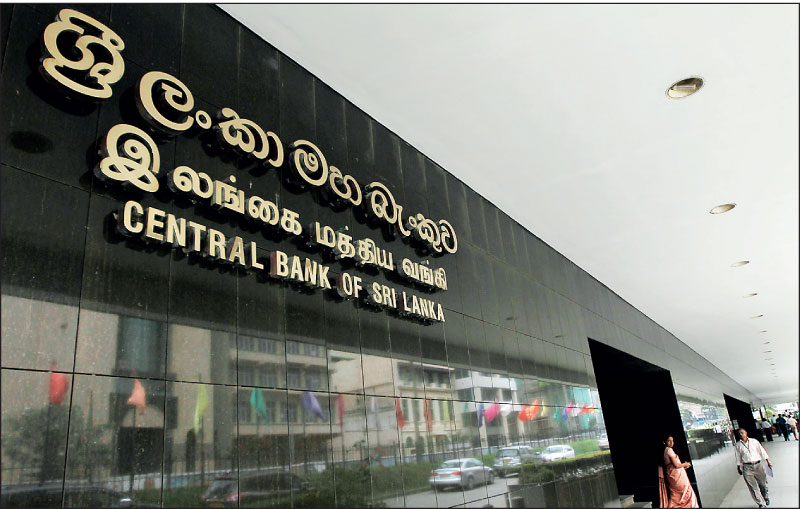Thursday Feb 12, 2026
Thursday Feb 12, 2026
Wednesday, 8 June 2022 00:21 - - {{hitsCtrl.values.hits}}

 While a very obliging helper stood in queues to get us our essentials, I had the opportunity to watch the COPE proceedings on the economic crisis held recently.
While a very obliging helper stood in queues to get us our essentials, I had the opportunity to watch the COPE proceedings on the economic crisis held recently.
I am thankful for those two mercies. Firstly, the help we get to look for essentials, and secondly the cameras that enabled us to watch those proceedings. Those of us who have faced these ordeals in the public service know that the cameras have brought about greater civility and decorum to the proceedings, and perhaps some balance – unlike in the case of Parliament proper.
Even so, I think there was some self-aggrandisement, finger pointing and side stepping on both sides of the divide, the questioners and the questioned. That too brought about some nostalgia – except that these are now luxuries that we cannot afford.
Today more than ever we need to analyse clearly what went wrong and where. And publicly acknowledge that. If not for punishment, at least as a lesson for the future
A point made by the Chairman of the Committee, Dr. Charitha Herath, was “spot on”. He said that fiscal policy and monetary policy were thought of as one (ekak wage hithuwe). Thereby obligations and responsibilities became blurred.
The Monetary Law Act was enacted in 1949. It doubtlessly needs to be updated to meet modern day complexities. But it is a well-conceived law for that time – though a little over optimistic.
A thought expressed by John Exter, the main conceiver of the Law in his report, has remained in my memory. I convey it here by memory and in my words: He expresses the hope that the presence of the Secretary to the Ministry of Finance on the Monetary Board will pave the way for discussion and agreement on sensitive issues so that monetary policy and fiscal policy can complement each other for the good of the country. However, he qualifies this lofty principle with the thought that no law, however well-crafted, can take the place of people appointed to these high positions – only they can ensure its success.
The reality today is that one of the main criticisms of the Monetary Law Act is with regard to the presence of the Secretary to the Ministry of Finance on the Monetary Board. One can surmise that the reason for that criticism is that time and again fiscal policy, sometimes driven by political agendas, has overridden monetary policy concerns.
This situation seemed to get highlighted in the disclosures at the COPE meeting.
Dr. Jayamaha said at the COPE meeting that even at the time she joined the Board, sometime in mid-2020, the Government’s opinion was that there should be a fixed exchange rate. The Monetary Board appears to have adhered to the Government’s wishes one way or the other till about March 2022, despite the very serious depletion of reserves and the recorded dissent of two of its members.
The depletion of reserves that was taking place was not a matter of opinion, but a fact which seemed to have alarmed at least those two members of the Board. It was a situation that should necessarily have attracted –
a). the provisions of Section 65 of the MLA which requires the Board to ‘endeavour to…maintain exchange arrangements as are consistent with the underlying trends in the country… as to assure its free use for current international transactions’;
b). the provisions of Section 66 that requires the Monetary Board to maintain an international reserve to meet any foreseeable deficits in the international balance of payments; and
c).the provisions of Section 68 (Action to Preserve the International Stability of the Rupee) which includes adopting policies and taking remedial action and submitting a comprehensive report to the Minister of Finance setting out, inter alia, the causes and the magnitude of the potential threat to the international stability of the rupee, the remedial action already taken by the Board and those it proposes to take.
In addition, the Board can also make recommendations to the Minister on fiscal or administrative action to be adopted.
The current Governor, Dr. Nandalal Weerasinghe, speaking at COPE, I believe of his time as Senior Deputy Governor when Prof. Lakshman was the Governor, stated that reports required under both Section 68 and Section 64 (Action to Preserve Domestic Monetary Stability) had been sent to the Ministry of Finance in accordance with the law. He did not elaborate on their content or say what transpired after the reports were sent.
Dr. Weerasinghe retired as Senior Deputy Governor in the latter part of 2020 and was appointed Governor in April 2022. By the end 2020, the direction in which the economy was heading was clear. So it would be relevant to know what recommendations were made by the senior officials of the bank and what action, if any, was taken at the time by the Monetary Board.
Also, did the Monetary Board adhere to the provisions relating to reporting under Section 68 (and Section 64) after Dr. Weerasinghe’s retirement? If it did so, what were the recommendations made?
If recommendations were made and the Minister did not agree with them and insisted on the Government’s decision to keep exchange rates fixed being adopted by the bank, the provisions of Section 116 (2) of the MLA (Monetary Policy and Fiscal Policy) should have been followed
i.e., the Minister should have informed the Monetary Board in writing that the Government takes responsibility for its decision and directed the Board to take such action as required by the Government. Is that how things happened?
Or did the Board itself recommend to the Minister (based on a majority decision) that the exchange rates should be kept fixed? If so, on what basis?
Or did the decision to keep the rates fixed continue on the basis of an unwritten agreement between the Government and a majority of the Monetary Board?
Answers to these questions would be relevant in fixing accountability.
The Monetary Board, perhaps more than any other body, has been vested with power to influence the Government on its economic policies and measures. For instance,
Section 114 of MLA prohibits the Government or any of its agencies from raising a loan unless the Monetary Board’s advice has been obtained on the monetary implications of such loan.
Under Section 115 of MLA the Monetary Board can make recommendations to the Government and its agencies on policies and measures to be adopted to coordinate their policies with the Monetary Board’s monetary policies.
This authority is given in addition to the power to make recommendations in situations of volatility under Section 68.
While some of the obligations of the Monetary Board referred to are mandatory, some powers are limited to providing advice or recommendations to the Government – perhaps on the premise of Exter’s presumption with regard to the relationship between the Board and the Ministry of Finance.
I have referred here only to one aspect of monetary policy and the powers of the Monetary Board in that regard (i.e. maintenance of the international stability of the rupee). The law also provides similar extensive powers to the Monetary Board for the maintenance of the domestic value of the rupee.
In both respects, the Monetary Board also has extensive powers to implement its monetary policy measures through the banking system.
My attempt here is to highlight that the current law, despite its many anachronisms that are being spoken of, is quite clear on where responsibility for monetary policy lies.
Our country is faced with multiple crises today because of failures – failure of leadership, of governance, of fiscal policy and, as transpired very clearly at the COPE meeting, of monetary policy.
The utter chaos that we are faced with today should open the eyes of those in public service in any capacity, at any level, that the obligations imposed on them by law are sacred and are not to be taken lightly.
(The writer is an Attorney-at-Law and a former Director, Legal Department, Central Bank of Sri Lanka.)